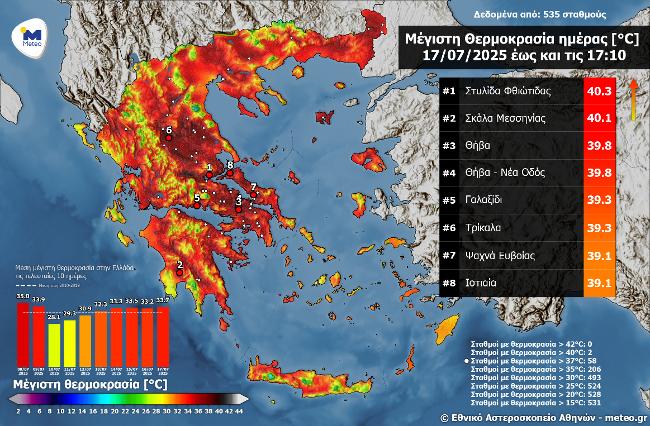
Introduction
The summer of 2023 has seen Greece grapple with one of the most severe heatwaves recorded in recent times. As temperatures soar to alarming levels, this phenomenon underscores the growing challenge of climate change and its impact on European countries. Amidst soaring mercury levels, it is crucial for residents, tourists, and authorities to adapt and respond to this climate crisis, which affects health, agriculture, and energy supplies.
Current Weather Conditions
Reports indicate that temperatures in various parts of Greece have climbed beyond 45 degrees Celsius (113 degrees Fahrenheit). Major cities, including Athens and Thessaloniki, are experiencing relentless heat, prompting local authorities to issue warnings regarding public health. The Hellenic Meteorological Service has classified this heatwave as one of the most intense in a decade, with expectations for temperatures to remain high for the next week.
Effects on Daily Life and Environment
The extreme temperatures have led to mounting challenges in daily life. People are urged to remain indoors during peak sunlight hours and stay hydrated. Emergency services are on high alert, expecting an uptick in heat-related ailments, such as heat exhaustion and heatstroke.
Agriculture, a vital sector for Greece, faces significant threats as crops become stressed under the relentless heat. Farmers express concern over potential losses in produce, particularly olives and grapes, which are central to the Greek economy. Additionally, wildfires have become a growing concern, exacerbated by the dry conditions.
Energy Demand and Conservation Efforts
The soaring temperatures have also resulted in unprecedented demand for electricity. With air conditioning units working overtime, energy consumption has surged, raising alarms about potential blackouts. Authorities are advising residents to use energy-saving measures where possible, such as turning off non-essential devices during peak hours and utilising natural ventilation.
Conclusion
The extreme heatwave in Greece serves as a stark reminder of the realities of climate change, which is increasingly manifesting through extreme weather events. As temperatures remain elevated and the country copes with the associated ramifications, the collective response of the populace, this inclusion of climate adaptation strategies, and governmental planning will be pivotal. The experiences of Greece may also serve as a case study for other countries facing similar climate extremes, prompting discussions on sustainable practices and preparedness for the future.
You may also like
Current Weather in Manchester: What You Need to Know

Understanding the Importance of AccuWeather in Daily Life

Marie Hobinger: A New Force in Environmental Activism
SEARCH
LAST NEWS
- Remembering Wendy Richard: The Promise to Co-Star Natalie Cassidy
- How Did Anglian Water Achieve an ‘Essentials’ Rating for Mental Health Accessibility?
- Shai Hope Leads West Indies in T20 World Cup Clash Against South Africa
- What We Know About Weston McKennie: Future at Juventus and Past at Leeds
- What We Know About the Upcoming Live Nation Antitrust Trial